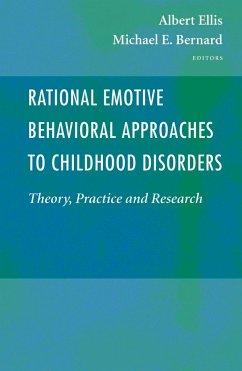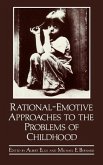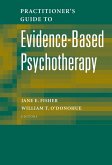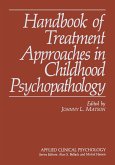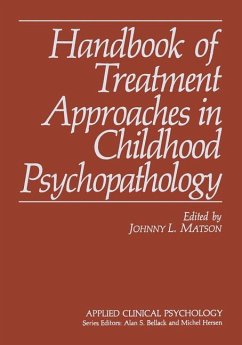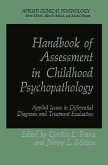Since the groundbreaking first edition of Rational Emotive Approaches to the Problems of Childhood by Albert Ellis and Michael Bernard two decades ago, our understanding of the nature and treatment of children's problems has grown considerably. Now in a completely new volume, Albert Ellis and children's REBT specialist Professor Michael Bernard have revised and updated this pioneering volume to reflect both the latest in clinical practice and research.
Fourteen expert contributors (including many from the original) share with the editors a deep commitment to integrating REBT with other cognitive-behavioral methods, and to providing young people with developmentally appropriate care. Together they give readers a practical framework for conducting assessment, treatment, and prevention with individuals, clients and groups as well as in family and school settings.
Key features of this new edition include:
Developmental considerations in using REBT with children and adolescents
Specific chapters devoted to major disorders -- aggression, phobias anxiety, depression, academic underachievement, and ADHD
Latest strategies for challenging and changing the irrational beliefs of young people
Techniques for building key REBT skills: emotional resilience and frustration tolerance
Extensive research findings on the efficacy of REBT with young people
Brand-new material on special issues -- involving parents, conducting group sessions, and working with exceptional children
An overview of Rational Emotive Education and You Can Do It! Education, school-based applications of REBT
With coverage this thorough, Ellis, Bernard, and collaborators have created a resource of immediate value to child and adolescent mental healthpractitioners including school psychologists, school counselors, school social workers, behaviortherapists, and family therapists, and educators involved in helping young people overcome behavioral disorders.
Hinweis: Dieser Artikel kann nur an eine deutsche Lieferadresse ausgeliefert werden.
Fourteen expert contributors (including many from the original) share with the editors a deep commitment to integrating REBT with other cognitive-behavioral methods, and to providing young people with developmentally appropriate care. Together they give readers a practical framework for conducting assessment, treatment, and prevention with individuals, clients and groups as well as in family and school settings.
Key features of this new edition include:
Developmental considerations in using REBT with children and adolescents
Specific chapters devoted to major disorders -- aggression, phobias anxiety, depression, academic underachievement, and ADHD
Latest strategies for challenging and changing the irrational beliefs of young people
Techniques for building key REBT skills: emotional resilience and frustration tolerance
Extensive research findings on the efficacy of REBT with young people
Brand-new material on special issues -- involving parents, conducting group sessions, and working with exceptional children
An overview of Rational Emotive Education and You Can Do It! Education, school-based applications of REBT
With coverage this thorough, Ellis, Bernard, and collaborators have created a resource of immediate value to child and adolescent mental healthpractitioners including school psychologists, school counselors, school social workers, behaviortherapists, and family therapists, and educators involved in helping young people overcome behavioral disorders.
Hinweis: Dieser Artikel kann nur an eine deutsche Lieferadresse ausgeliefert werden.
From the reviews:
"After practicing rational emotive behavioral therapy (REBT) for more than 20 years with both children and adults, I found this edited collection of chapters on various topics of child behavior evolving, enlightening, and reenergizing. ... there has not been such a well-edited collection of the latest in REBT with children since the 1980s. ... Child therapists from almost any discipline would benefit from reading this text and incorporating the described REBT tools and specialized techniques." (Lockie McGehee Johnson, PsycCRITIQUES, August, 2006)
"After practicing rational emotive behavioral therapy (REBT) for more than 20 years with both children and adults, I found this edited collection of chapters on various topics of child behavior evolving, enlightening, and reenergizing. ... there has not been such a well-edited collection of the latest in REBT with children since the 1980s. ... Child therapists from almost any discipline would benefit from reading this text and incorporating the described REBT tools and specialized techniques." (Lockie McGehee Johnson, PsycCRITIQUES, August, 2006)
